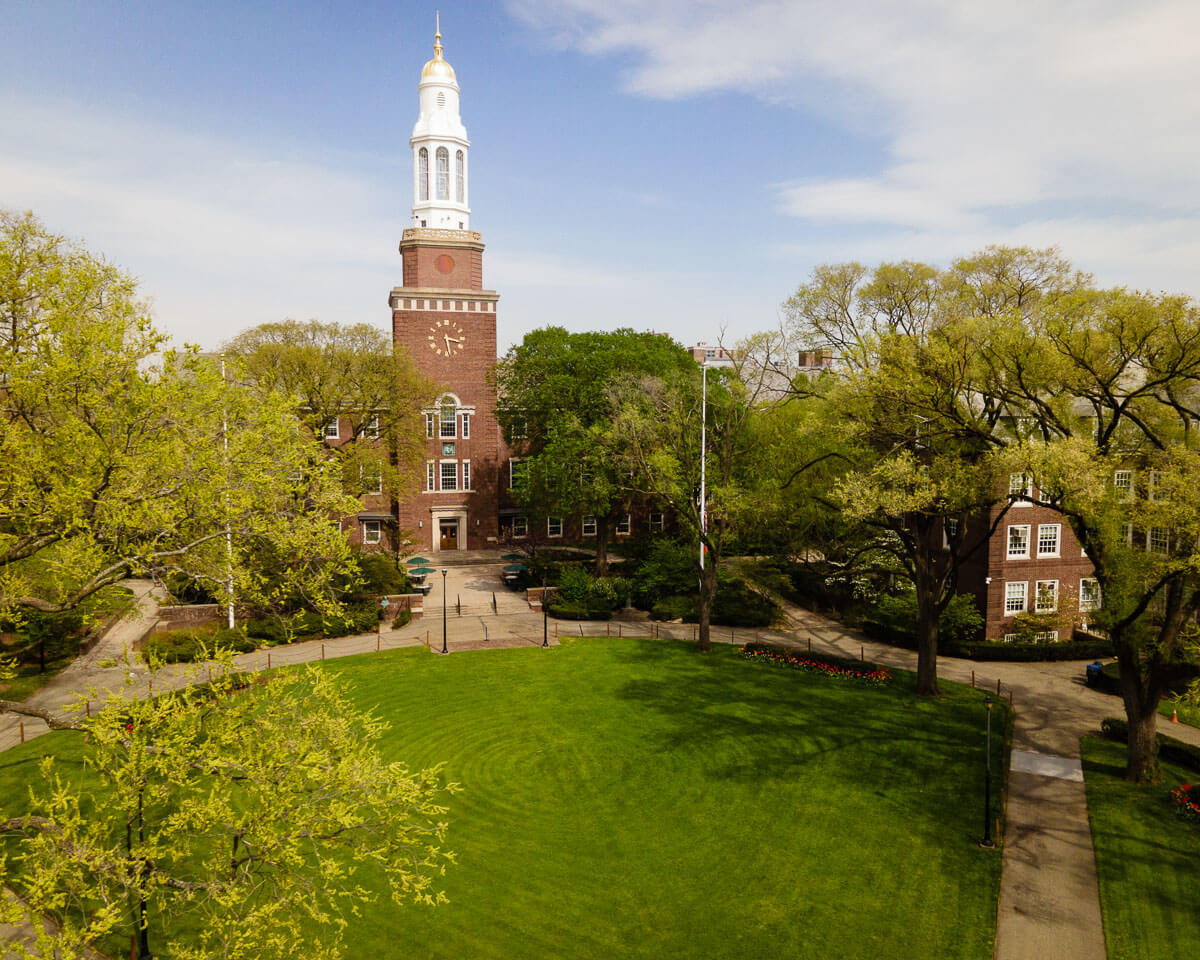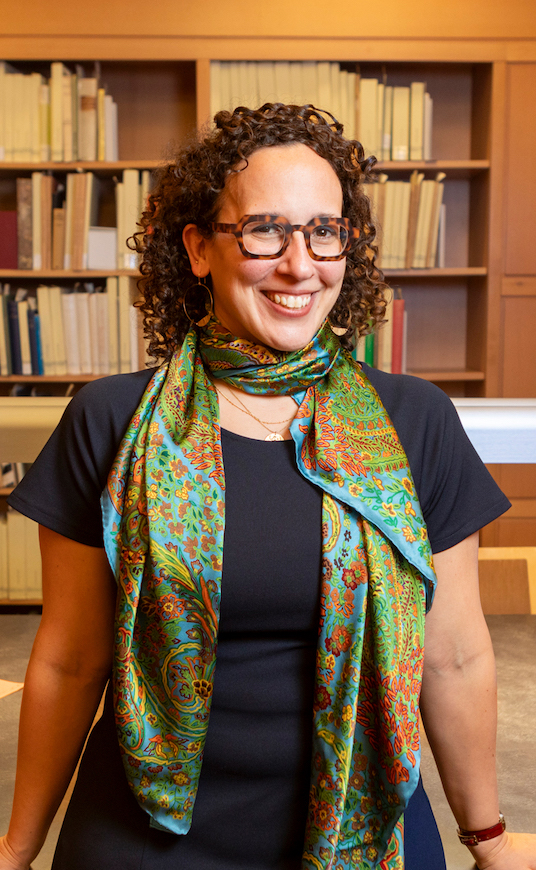History, B.A.
School of Humanities and Social Sciences
Program Overview
Historians study humanity’s past successes and failures, eras of brilliance and times of darkness, enlightened civilizations, and devastating regimes—all of which help explain the present. With a firm understanding of what preceded us, you can shape where we are headed. The Bachelor of Arts program in history offers you the opportunity to study history in a wide variety of subject areas, ranging from ancient to modern periods in African, Asian, European, Latin American, and Middle Eastern history as well as U.S. history from the colonial period to the present.

Major Details
The program information listed here reflects the approved curriculum for the 2024–25 academic year per the Brooklyn College Bulletin. Bulletins from past academic years can be found here.
Major Requirements (36 Credits)
- General Surveys (3 credits). Students must take three credits in one of the following three courses: HIST 1101, 1201, or 1202 to satisfy this requirement.
- History 2001W: The Historian’s Craft (4 credits), with a grade of C or higher. History 2001W is a prerequisite for all history courses numbered in the 4000s.
- Lower-division courses (at least 21 credits), including at least three credits in each of the geographic regions a), b), c), and d), below. Within the specific geographic regions listed below, all students majoring in history must take at least one course from before 1500 from among the following: HIST 3001, 3002, 3003, 3015, 3021, 3022, 3023, 3024, 3025, 3030, 3031, 3033, 3040, 3044, 3090, 3100, 3101, 3310, 3317, 3352, 3530, 3532, 3536, 3560
- a) African, Asian, Caribbean, Latin American, and Middle Eastern history, at least one of the following courses: HIST 3030, 3100, 3317, 3345, 3350, 3335, 3373, 3510, 3512, 3515, 3517, 3530, 3532, 3534, 3535, 3536, 3538, 3543, 3545, 3548, 3550, 3554, 3557, 3560, 3561, 3590.
- b) European history, at least one of the following courses: HIST 3001, 3002, 3021, 3023, 3024, 3031, 3033, 3040, 3044, 3050, 3070, 3080, 3101, 3102, 3104, 3206, 3208, 3209, 3210, 3212, 3220, 3230, 3231, 3241, 3242, 3243, 3252, 3254, 3255, 3290, 3371, 3332, 3554.
- c) Transnational and/or comparative history, and/or global history, at least one of the following courses: HIST 3001, 3003, 3021, 3022, 3025, 3100, 3317, 3104, 3255, 3310, 3315,3320, 3323, 3325, 3328, 3330, 3335, 3336, 3337, 3339, 3345, 3350, 3352, 3335, 3360, 3370, 3371, 3372 , 3373, 3390, 3450, 3455, 3460, 3510, 3512, 3515, 3517, 3543, 3548, 3550, 3557, 3560, 3561.
- d) U.S. history, at least one of the following courses: HIST 3374, 3410, 3412, 3413, 3414, 3416, 3418, 3419, 3420, 3424, 3430, 3435 , 3440, 3441, 3442, 3450, 3452, 3453, 3454, 3455, 3458, 3460, 3462, 3470, 3472, 3475, 3476, 3478, 3479, 3480, 3485, 3490
Courses may count only toward one distribution category. “Other lower-division courses” count as additional course elective requirements, not as distribution requirements.
And any three additional courses, excluding HIST 1101, 1201, and 1202. Note that HIST 3090 may satisfy any one of the four distribution requirements a-d, but always satisfies the pre-1500 requirement.
- Upper-division courses (8 credits). Eight credits in upper-division, 4000-level courses with a grade of C or higher in each course. One of these courses must be a colloquium.
History majors fulfilling program requirements described in earlier Bulletins should validate their programs with a department counselor at the time they declare the major. With permission of the chair, one course taken outside the department may count toward the major. With permission of the chair, in consultation with the department, a course taken in History may be substituted for another, where warranted and for distribution purposes.
Student Learning Outcomes
Students will be able to:
- demonstrate basic knowledge about key historical concepts (such as “objectivity”) and historical terminology (such as “primary source”);
- demonstrate basic knowledge about key historical actors and events across the department’s distribution requirements;
- articulate a clear research question, assemble a bibliography, and use citations properly;
- situate an original historical argument within a basic historiographical framework;
- effectively incorporate primary sources into a historical argument; and
- express basic historical ideas in writing using a clear thesis statement, a well-organized argument, and effective evidence.
Degree Maps
To help you pursue your studies in the most efficient manner, and to maximize your efforts to graduate in four years, Brooklyn College has created four-year degree maps for all its majors.
View degree maps for this major and others.
Contact
KC Johnson
1127a Boylan Hall
E: HistoryDeputy@brooklyn.cuny.edu
P: 718.951.5000 ext. 2813
Or contact:
Office of Undergraduate Admissions
222 West Quad Center
2900 Bedford Avenue
Brooklyn, NY 11210
E: adminqry@brooklyn.cuny.edu
To make an appointment with an undergraduate admissions counselor, visit:
The Support You’ll Find
Brooklyn College is an integral part of the cultural and artistic energy of New York City. Our faculty members in the Department of History offer incomparable expertise and tremendous talent, and each brings a unique perspective to their teaching and mentoring in and out of the classroom.
Internships and Employers
Through job fairs, the internship database, and internship panels, the Magner Career Center gives students in the history B.A. program access to career opportunities at a wide variety of employers, including:
- American Museum of Natural History
- The London Library
- New York City Department of Education
- New York Life Insurance Company
- New York University
- United States Court of Appeals








